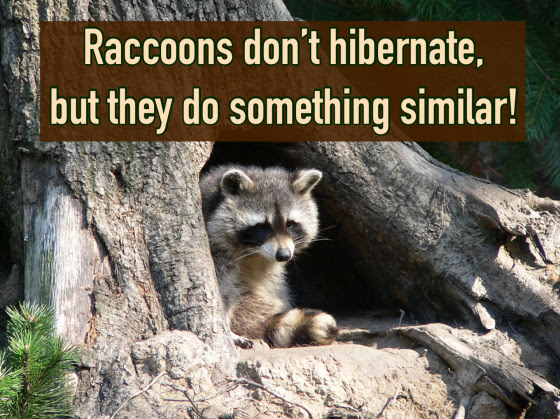Raccoons right now are going through many changes to prepare for winter. Rather than being strictly norcturnal, they’re becoming more active at dawn and dusk, and are developing a strong instinct to forage on high-fat foods and seek shelters. All these changes prepare them “Diet Hibernation” during the coldest months, known scientifically as torpor.

Torpor differs from true hibernation. Animals in true hibernation sleep for weeks or months at a time and don’t need to eat or drink. Bears can even give birth during hibernation, barely waking up in the process!
While raccoons in the coldest parts of their range may sleep for several days at a time during torpor, they never experience the dramatically slowed metabolism that true hibernators experience. During torpor, some raccoons come out during the warmest part of the day to forage for food. Torpor serves the same purpose as hiberation: it enables animals to make it through the lean months with little food.
If you’re one who can relate to a raccoon’s desire to spend the winter sleeping and coming out only to eat “comfort food,” that’s because humans have a torpor instinct just like our wild neighbors. We tend to sleep more and gain weight during the winter, and many experts believe that torpor instinct is a major contributor to seasonal depression. These coming months are hard for most wild creatures, and we’re no exception!
If you see raccoons foraging in the daytime and they appear otherwise healthy, there’s no need to panic and assume they have rabies. They’re just adjusting their habits with the seasons, as nature intended!
